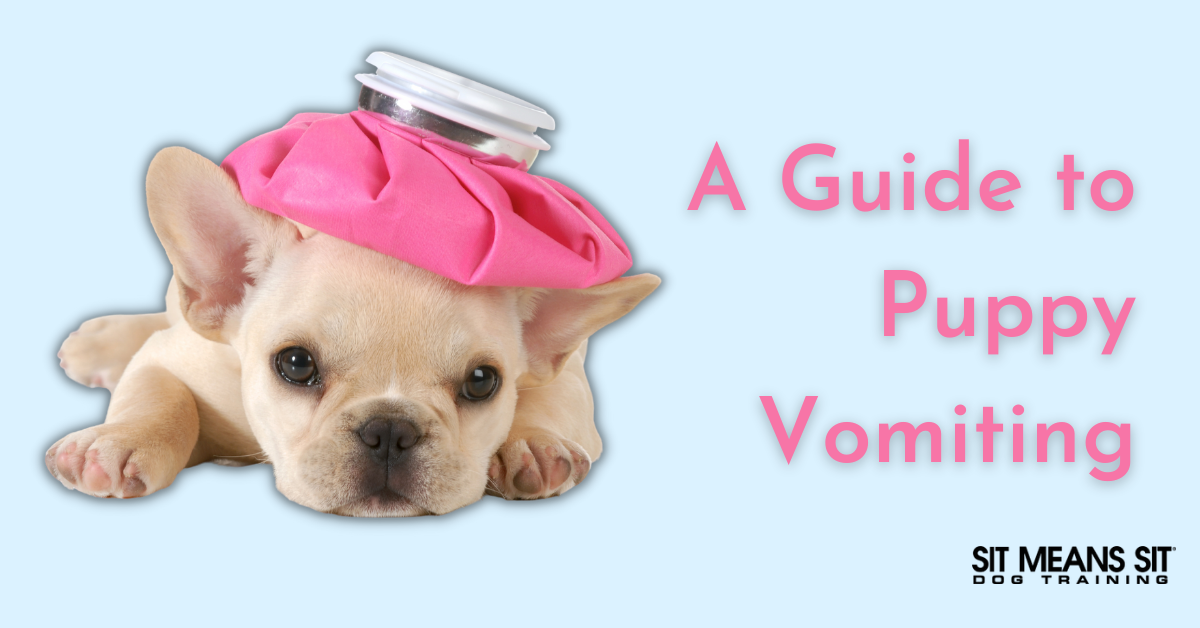
A Guide to Puppy Vomiting
Vomiting can be especially worrisome in puppies since they are more prone to becoming dehydrated and losing critical electrolytes. There are various reasons why your puppy could be vomiting or why you might need your puppy to vomit. To better understand your puppy’s vomiting and how to safely handle it, read on!
What Causes Puppy Vomiting?
A vast majority of puppy vomiting is caused by gastric irritation due to eating things they shouldn’t like inedible objects, spoiled or rich foods, or just eating too much too quickly. Your puppy could also be vomiting due to motion sickness during car rides. If your pup hasn’t completed their vaccination series yet, they could also be sick due to an infection.
Vomitting could be a sign of one of these ailments:
- Canine Distemper Virus
- Canine Parvovirus
- Intestinal Parasites
- Bloat
- Organ Dysfunction
- Addison’s Disease
- Gastrointestinal Ulcers
- Anatomic Abnormalities
- Pancreatitis
- Abdominal Infections
- Inflammatory Bowel Disease
Repeated vomiting, vomiting with diarrhea, dry heaving, vomiting that contains blood or abnormal materials, or vomiting in a puppy that is followed by lethargic or confused actions are all serious causes for concern and should warrant a visit to the emergency vet. Or whenever in doubt about your pup’s health, check with their vet. It’s always better to be safe rather than sorry.
What’s the Difference Between Vomiting & Regurgitation?
Vomiting is the active process that is accompanied by retching and abdominal contractions. While regurgitation is passive. With regurgitation, the dog might even seem surprised by the food that just came out of their mouth. Regurgitation can happen minutes or hours after your furry friend eats and what comes up is mostly undigested and might even come up in the shape of their esophagus.
It’s important to know the difference because Fido’s vet will be looking at different ailments depending on if your pooch is vomiting or regurgitating since they have very different causes and treatments.
Treatment & Prevention
While vomiting can be the sign of a dangerous illness, on its own it can also lead to more dangerous results due to it causing dehydration and other problems. Anytime you see your puppy vomit multiple times in a single day, chronically vomit, or have additional symptoms such as diarrhea or lethargy – you should call their vest ASAP.
Give Your Puppy Mild Foods
To help combat your puppy’s vomiting, your vet will most likely recommend a mild diet for a few days that will allow them to recover and aid in their sensitive stomach. White rice and white meat chicken with the skin and bones removed are a good option to consider. Also, be sure your pup is getting an adequate amount of water with their meals to help combat their dehydration.
Slow Down Your Puppy’s Eating
If your puppy is healthy but wolfs down their food as quickly as possible, try to work on slowing their eating down to reduce vomiting. You can accomplish this by:
- Feed puppies in separate rooms to cut down on competition eating
- Use a slow feeder to force your pup to eat around obstacles to get to their food
- Feed your puppy several small meals throughout the day
Inducing Vomiting in Your Puppy
Puppies are known for putting things in their mouth that you shouldn’t be. So, there might be an occasion when you need to induce vomiting in your puppy so they don’t absorb any toxins. However, if Fido ingested something sharp then you’ll want to leave it up to the professionals.
Always consult your vet before giving your puppy any medication or taking medical action. And remember always run it safe rather than sorry and bring your pup to the vet if you’re concerned about their safety or health.
